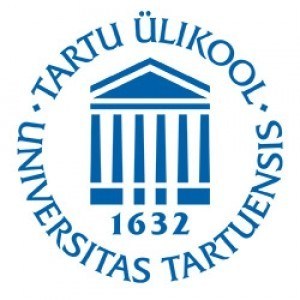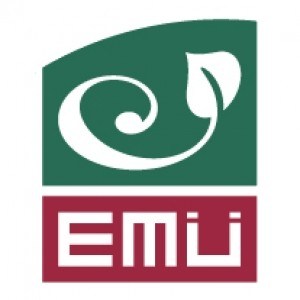Photos of university / #tallinnatehnikakorgkool
Artists doing strange things with technology. This sums up our MADtech Programme. To imagine, interpret and change human interaction with a transforming world you will use and artistically explore different technologies. You will do so with a tinker mentality: play and experimentation are important aspects in your development and will carry a special emphasis on the research you do. This mentality, combined with a critical reflective attitude and conceptual skills, will lead to unexpected perspectives, resulting in multimedia artistic work.
Past, present and future
At MFA MADtech we are constantly searching for the dialogue between different viewpoints from the past, present and future: between art and science, laboratory and applied research, stable and unstable media, old and new technology, local and global forms of society. We do so collectively, sharing our views and ideas, working in groups and learning from each other. At the same time, you will follow your own path, improving your knowledge and skills, learning to reflect critically on your own position, role and work as well as on the world around you.
Hybrid practice
Participants of our programme come from different practices, media, art and design, and share a fascination for technology. The combination of these areas gives you the opportunity to develop your artistic vision, working in a hybrid practice as a critical and engaged artist. As your art engages with the world, you will grow as an individual as well as in your artistic profession, reinforcing the power of your imagination and exploring your own connection to a transforming, technologically charged society.
What matters
To be admitted to this master, we expect you to show us what you want to get out of this programme. We therefore ask you to submit a broad outline of the artistic research that matters to you. What is it that fascinates you about art and technology? What kind of experiments would you like to carry out? During the admissions procedure you will discuss your ideas with us. Once admitted, your ideas will form the start of the next two years.
The Frank Mohr Institute is named after Mr A. Frank Mohr (1931-1998), cultural advisor to the city and province of Groningen and chairman of the advisory boards of the Minerva Art Academy and the Prince Claus Conservatoire. He was a fervent advocate of independence and innovation in art education in the North Netherlands.
First year: exploring possibilities
The first year of this master programme is mostly about exploring your chosen field. You will carry out your own experiments in our Hybrid Arts Lab, tinker with new technology during creative programming and explore research possibilities in art practices. This will allow you to improve your knowledge and skills, get to know the international art practice, create new concepts and to discover the possibilities of artistic research.
First year highlights
Experimenting in our Hybrid Arts Lab.
Following a rich creative programming course, like MAX/MSP.
Research & Media Theory: following theory and research courses about the relationship between visual perception psychology and media theory and between perception and cognition, current developments in media theory and links between the arts, visual communication and visual culture.
Attending a series of lectures at the University of Groningen.
Collaborating in a shared research course on Research & Development/New Media Art Practices with master students of the University of Groningen.
Regular sessions where you and your fellow students present and discuss the results of experiments, workshops, research projects and your own progress; to each other, to experts and to the public.
Individual or collective visits to relevant institutions, festivals, work places and research centres.
Preparing for second year
During your first year you will gradually focus on what you really want to concentrate on in your second year, gathering ideas, improving your skills and gaining new knowledge to prepare for your practical research. This way you can develop and refine your research plan, which you will carry out in your second year, and which will form the basis of your master thesis. At the end of your first year an assessment of your work will determine whether you are ready to enter the second year.
Programme second year
Realising your artistic goals
At the start of your second year, you will begin to work on your graduation project. Most of your time will be devoted to working on this project. There will still be classes, although less than in the first year. Supervisors will advise and guide you and encourage your progress. Your goal is to realise your research project and write your master thesis. There will be plenty of opportunities throughout the year to share what you have learned and experienced with others during sessions, discussions and presentations. Depending on what you need, we will ask guest lecturers to contribute to the supervision of your research project. During a series of public dialogues, second year students will also discuss their work with guest lecturers and others, helping you to improve your work and take it to the next level.
Applying for prestigious awards
In addition, as a second year master student you can apply for special awards for excellent students of fine arts, for instance the 'George Verberg Grant', an annual, prestigious award of 10,000. This award enables the winner to spend a year in one of the Baltic States, Germany, Poland or Scandinavia in order to work there as an artist.
Second year highlights
Spending many hours in the lab, experimenting individually or in collaboration with others, focusing on your own project.
Following a creative programming schedule; individually or collectively.
Attending a series of lectures on relevant subjects at the University of Groningen, like history of art, psychology of art and art philosophy.
Studying independently, supervised by your lecturers.
Joining projects, collaborating with the Centre of Applied Research and other Hanze partners.
Visiting international festivals, like Ars Electronica in Linz, Transmediale in Berlin and an intensive study trip to New York.
Regular sessions, where you and your fellow students present and discuss the results of experiments, workshops, research projects and your own work relating to your graduation project.
Presenting and discussing your work at public occasions, such as festivals, exhibitions and public lectures.
Graduation work and master thesis
Towards the end of your second year you will make your graduation work and write a master thesis, showing your analytical skills, critical view and ability to reflect on your own work, as well as illustrating your research abilities. With this thesis you also show us your future place in the world of art. You will present your artistic work and your master thesis at your public graduation. Upon your graduation you will be awarded the degree of Master of Fine Arts.
Lecturers
Core tutors
- Jan Klug
- Ruud Akse (theory)
Tutor Computer Visualisation
- Daan Tweehuijsen
Semester tutor Spring semester 2013-2014
- Evelina Domnitch and Dmitry Gelfand
Semester tutors 2007-2014
- Marc Bijl
- Sonia Cillari
- Kees de Groot
- Gerald van der Kaap
- Rob van Kranenburg
- Esther Polak
- Pips:lab
- Sander Veenhof
- Federico Bonelli
Guest tutors / workshops 2007-2014
- Mariska de Groot
- Janwillem Schrofer
- Arie Altena
- Justin Bennett
- Jens Brand
- Vincent Bruijn
- Mariette Dolle
- Ronny Edens
- Benjamin Gaulon
- Sabine Himmelsbach
- Karen Lancel
- Kyle Lapidus
- Egbert Otten
- Mechtild Prins
- Laurens Rozema
- Andrey Smirnov
- Maria Verstappen and Erwin Driessens
- Peter Werkhoven
- Rob van der Wer
Accreditation
The programme is formally accredited by the Dutch government (NVAO).


